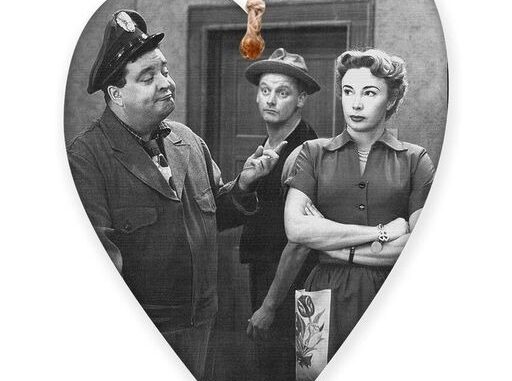

The Honeymooners, a classic sitcom that aired in the 1950s, is often viewed nostalgically, but there is also a critical perspective to consider. The show depicted a working-class married couple in a Brooklyn tenement, with Ralph Kramden played by Jackie Gleason, his wife Alice by Audrey Meadows, and their neighbors, Ed Norton and his wife, Trixie. While the show offered comedic entertainment, some critiques have emerged that raise concerns about its portrayal of relationships and domestic dynamics 1 4 .
Historically, the show was a continuation from a sketch on the DuMont Television Network to being featured on the Jackie Gleason Show, eventually moving to the CBS network. The show’s evolution included changes in actors for certain roles and financial aspects of production, providing a glimpse into its behind-the-scenes dynamics 8 .

The show has faced criticism related to the portrayal of Ralph Kramden as a dominating and bullying character who frequently belittled and made demands of his wife, Alice. This has led to characterizing Ralph as an abuser, displaying various forms of emotional and verbal abuse toward his wife, a theme that could be considered challenging and troubling in today’s context 9 .
The show’s depiction of the characters’ interactions may have played a role in perpetuating gender stereotypes and normalizing domestic dynamics that align with historical attitudes surrounding gender roles, power dynamics, and interpersonal relationships. The interactions may have contributed to the distorted perception of acceptable behavior in marriages or relationships 1 4 .
One should also take into account the context in which the show was produced — the sociocultural attributes, pre-established norms, and conventional gender dynamics — to understand its portrayal of working-class life in the 1950s. This temporal context played a crucial role in shaping the dynamics and themes presented in the show 5 .

The concerns raised by modern critiques present an opportunity to reflect on the societal changes and evolving standards around marital interactions and indicate a shift in perspectives and awareness regarding relationships. Analyzing the show within a contemporary lens could provide valuable insights into the societal advancements relating to gender dynamics and interpersonal relationships.
Lastly, it is worth noticing the powerful impact of the show’s characters, especially that of Alice, portrayed by Audrey Meadows. Meadows, the actor behind the character, displayed professionalism by advocating for residuals to be written into her contracts and, in real life, had remarkable achievements, such as serving as the Director of the First National Bank of Denver and making significant contributions to Continental Airlines’ operations 9 .